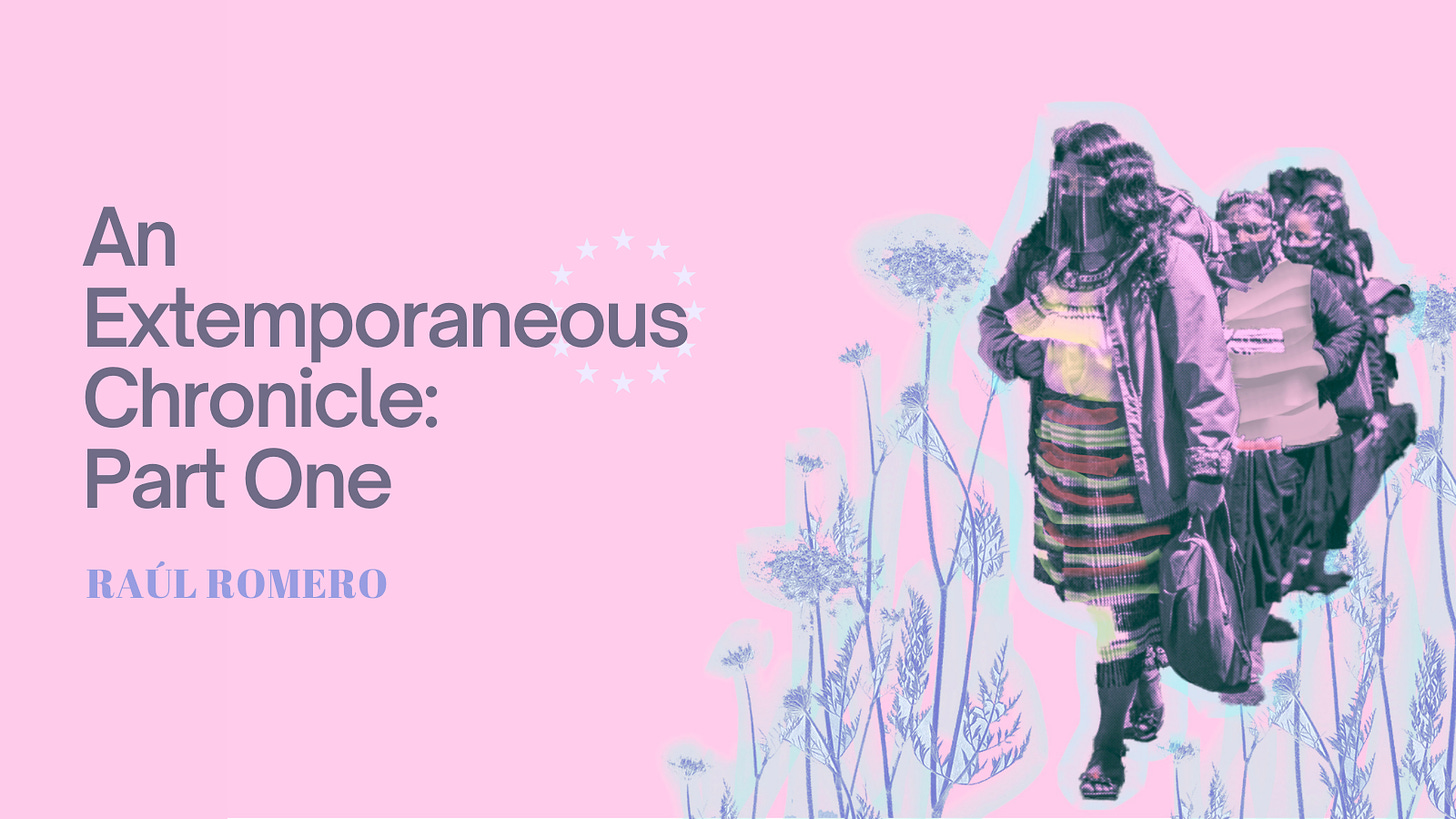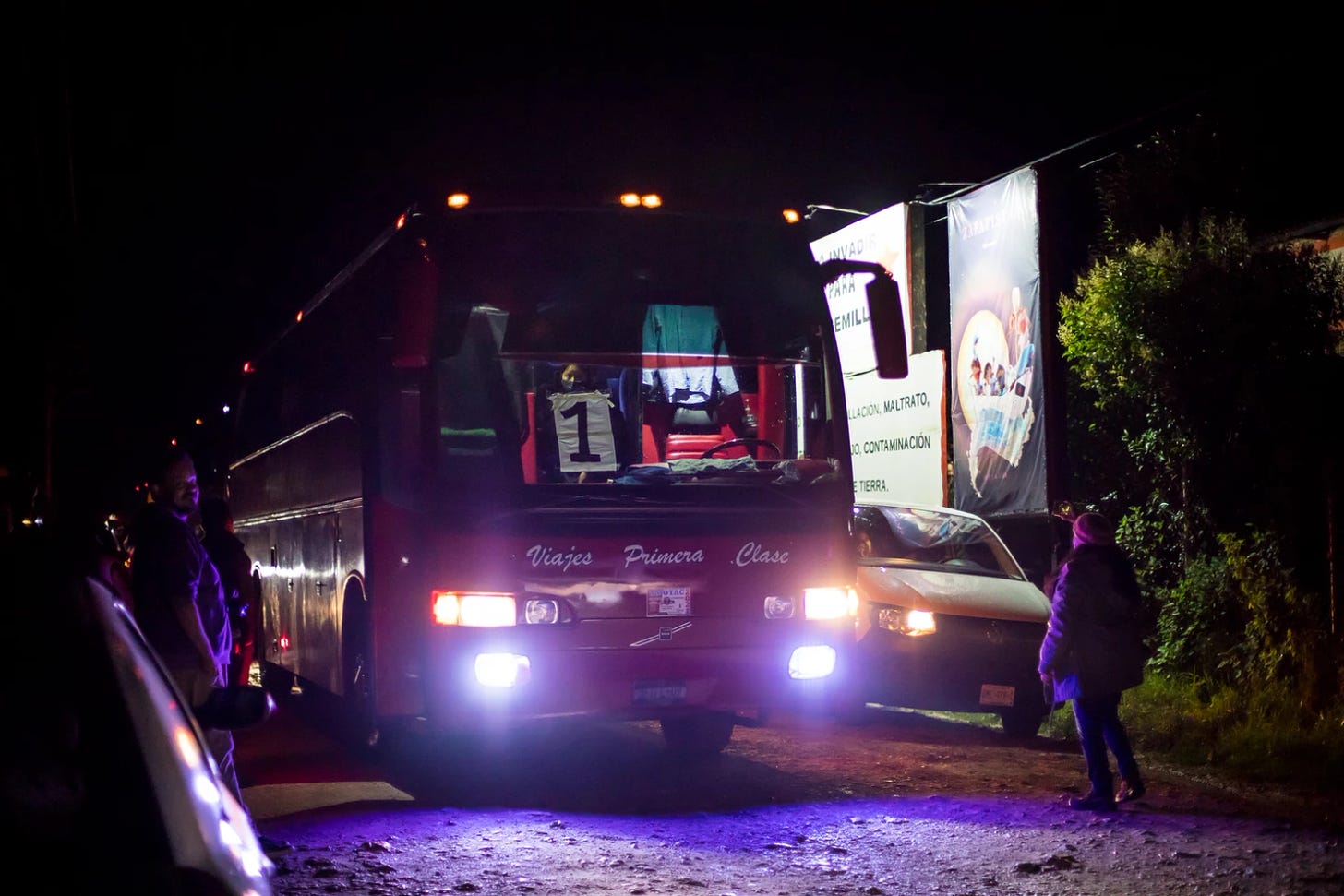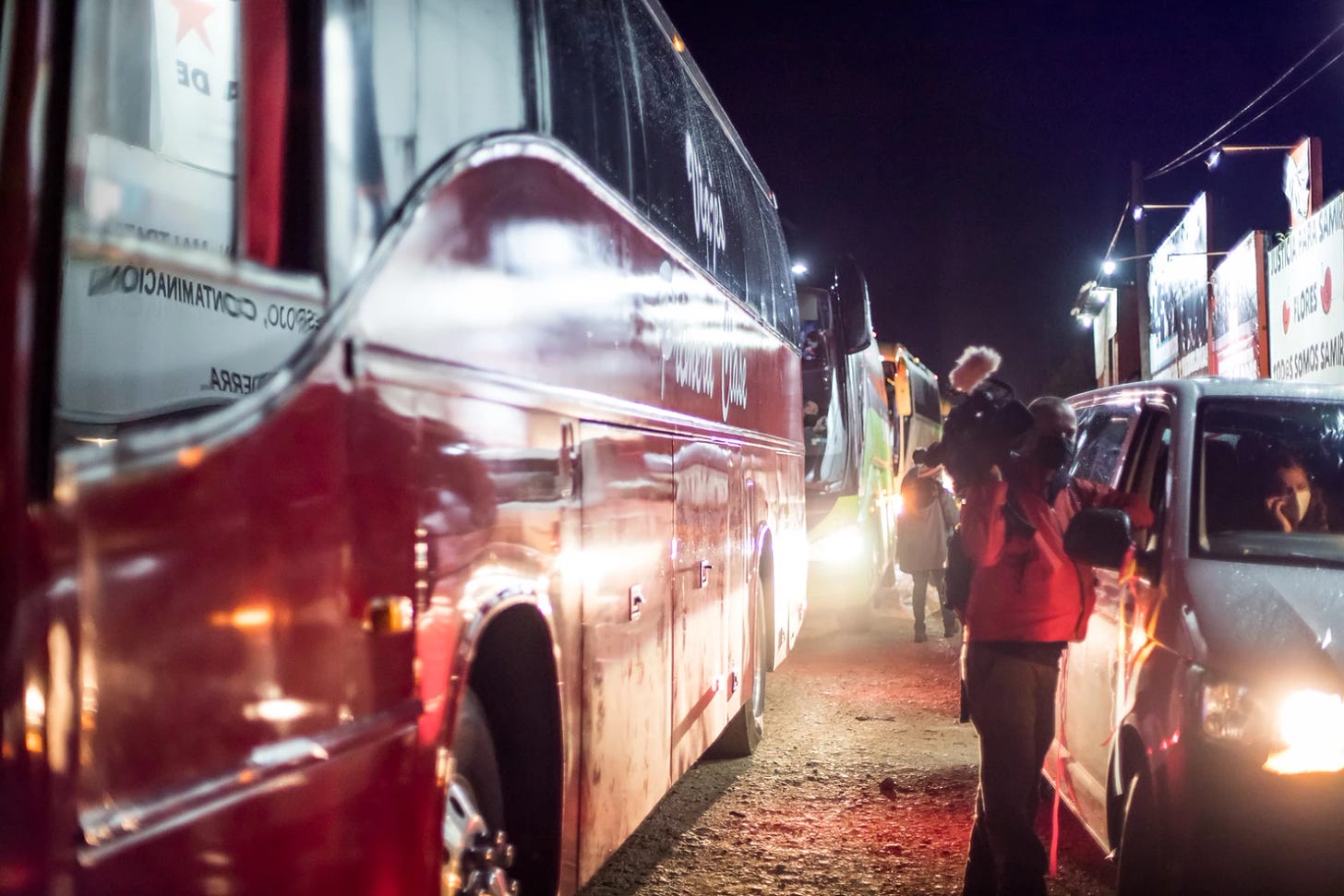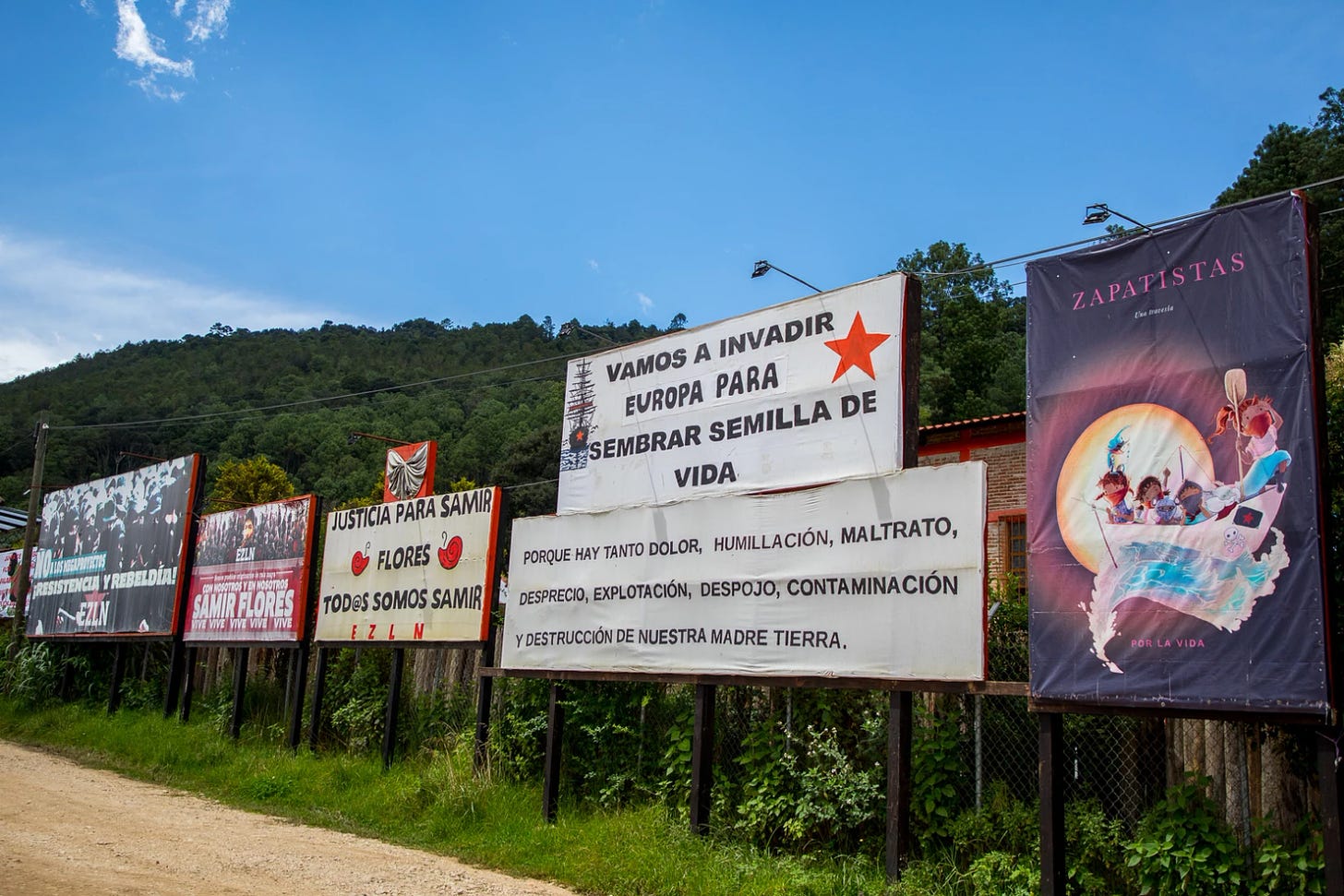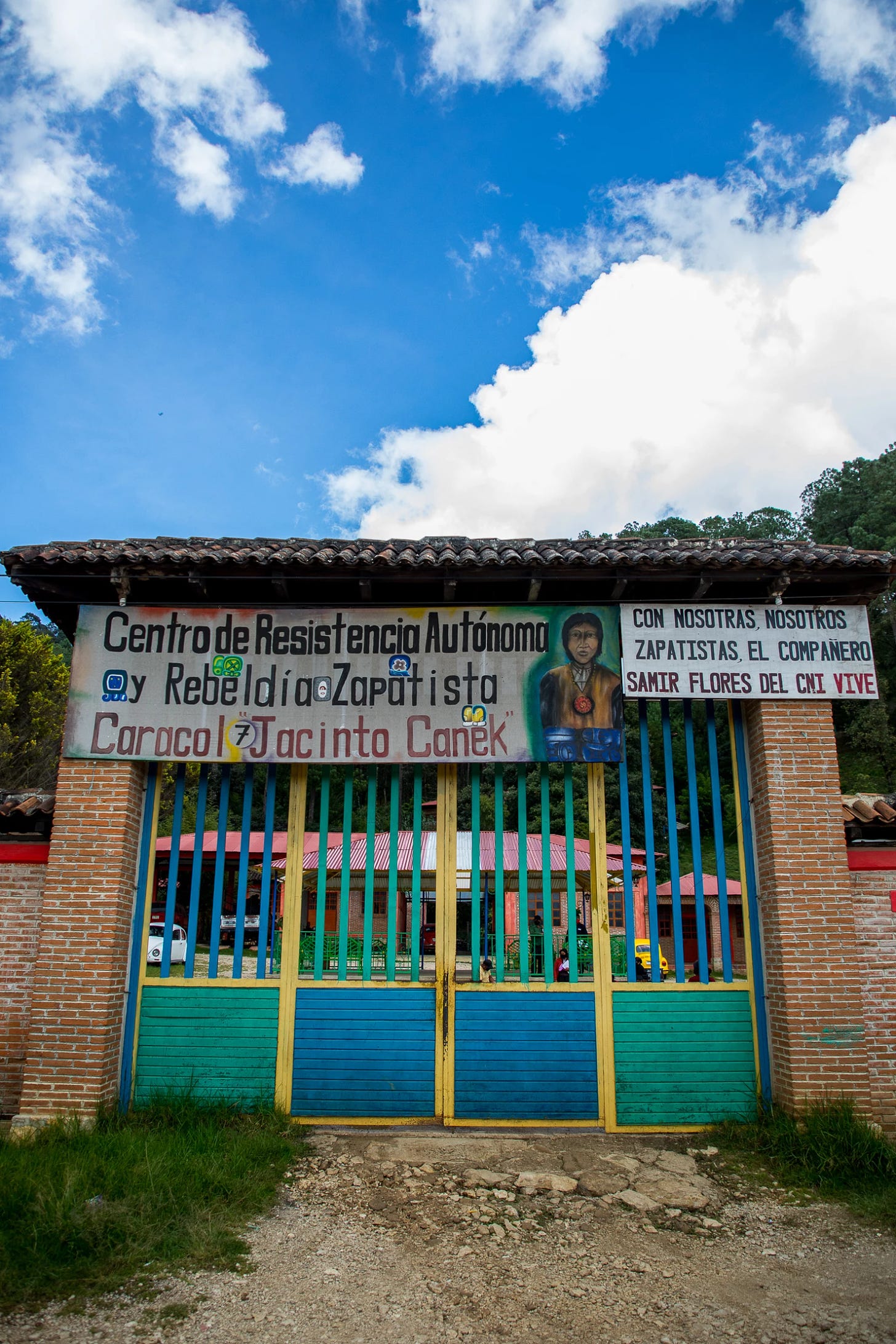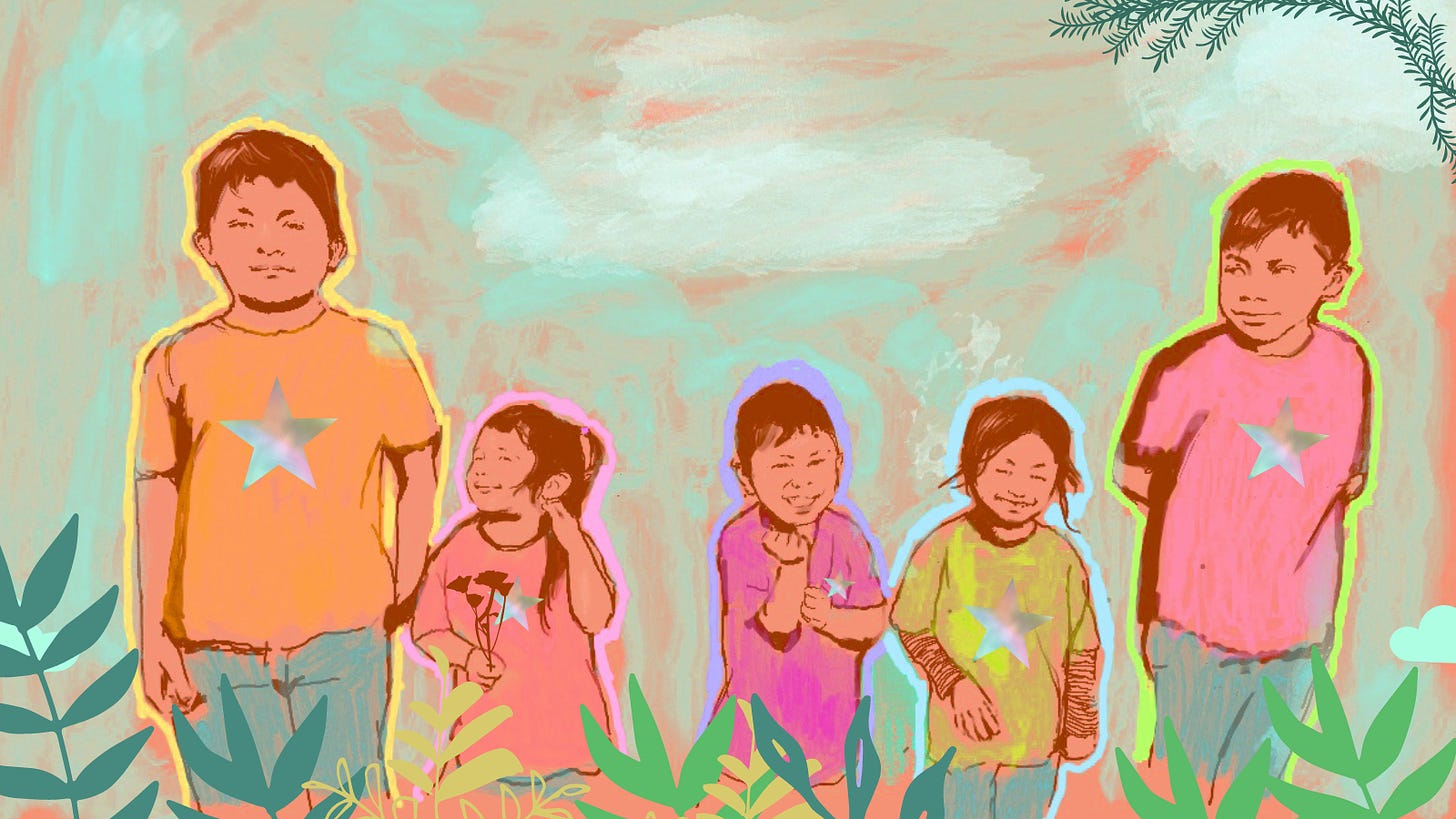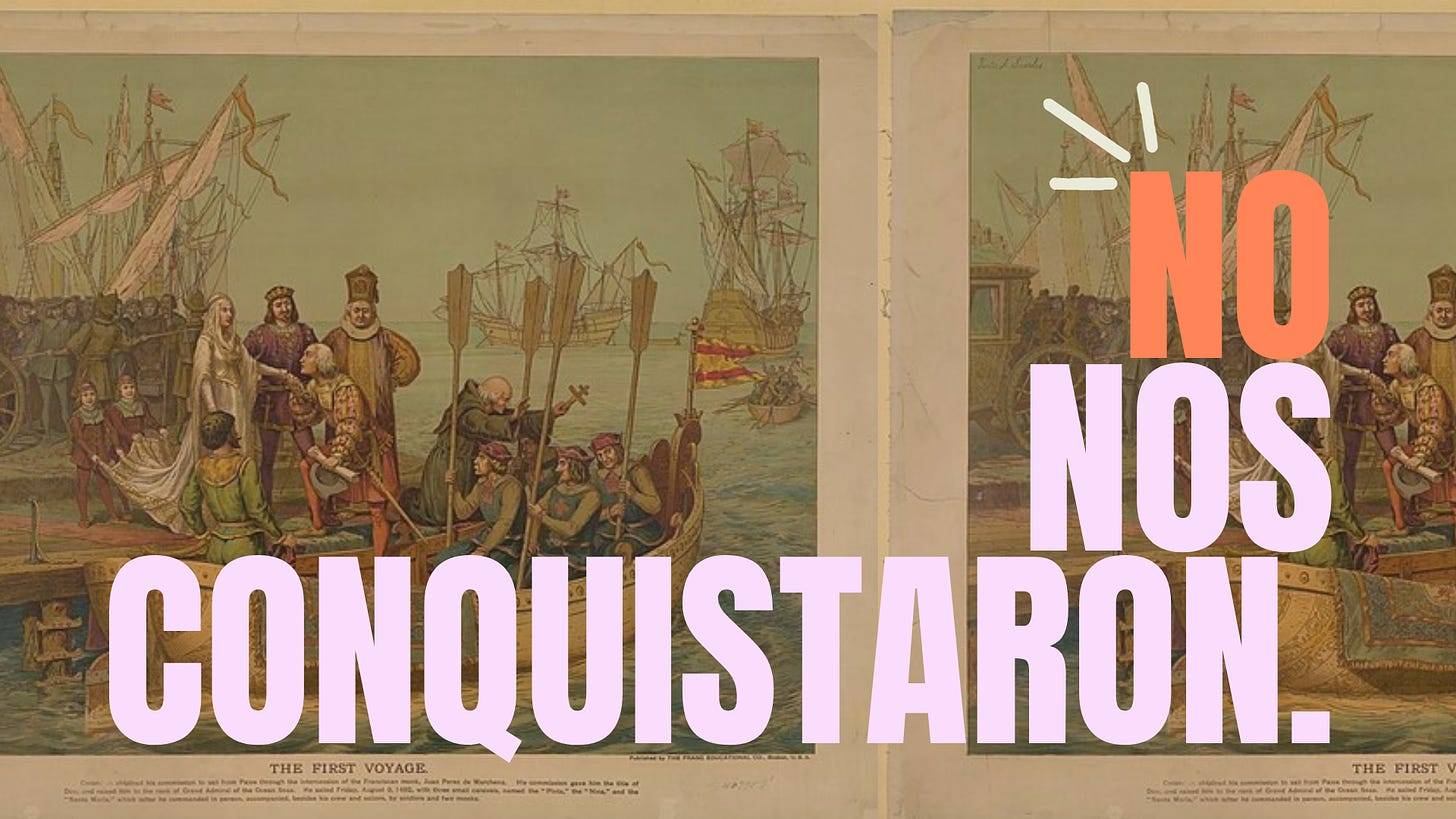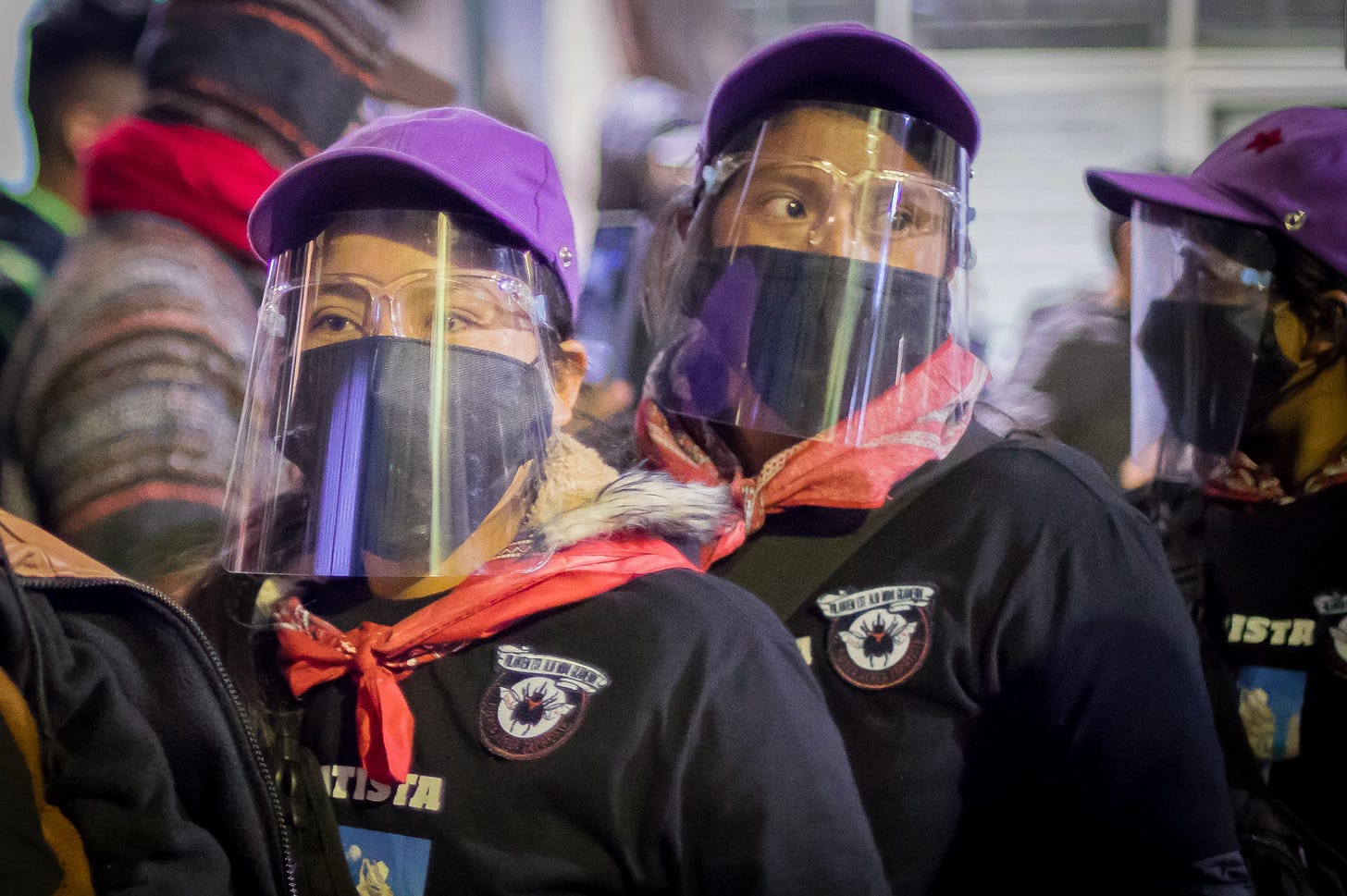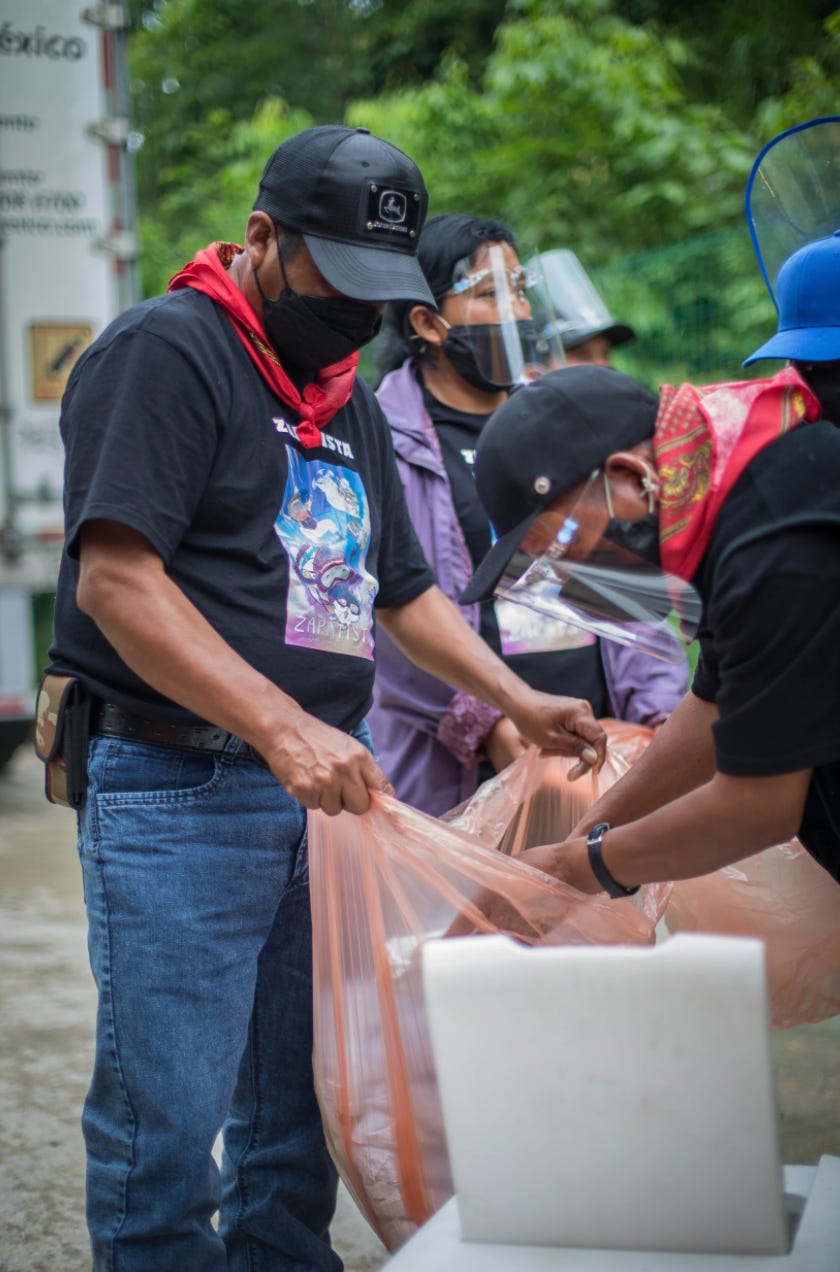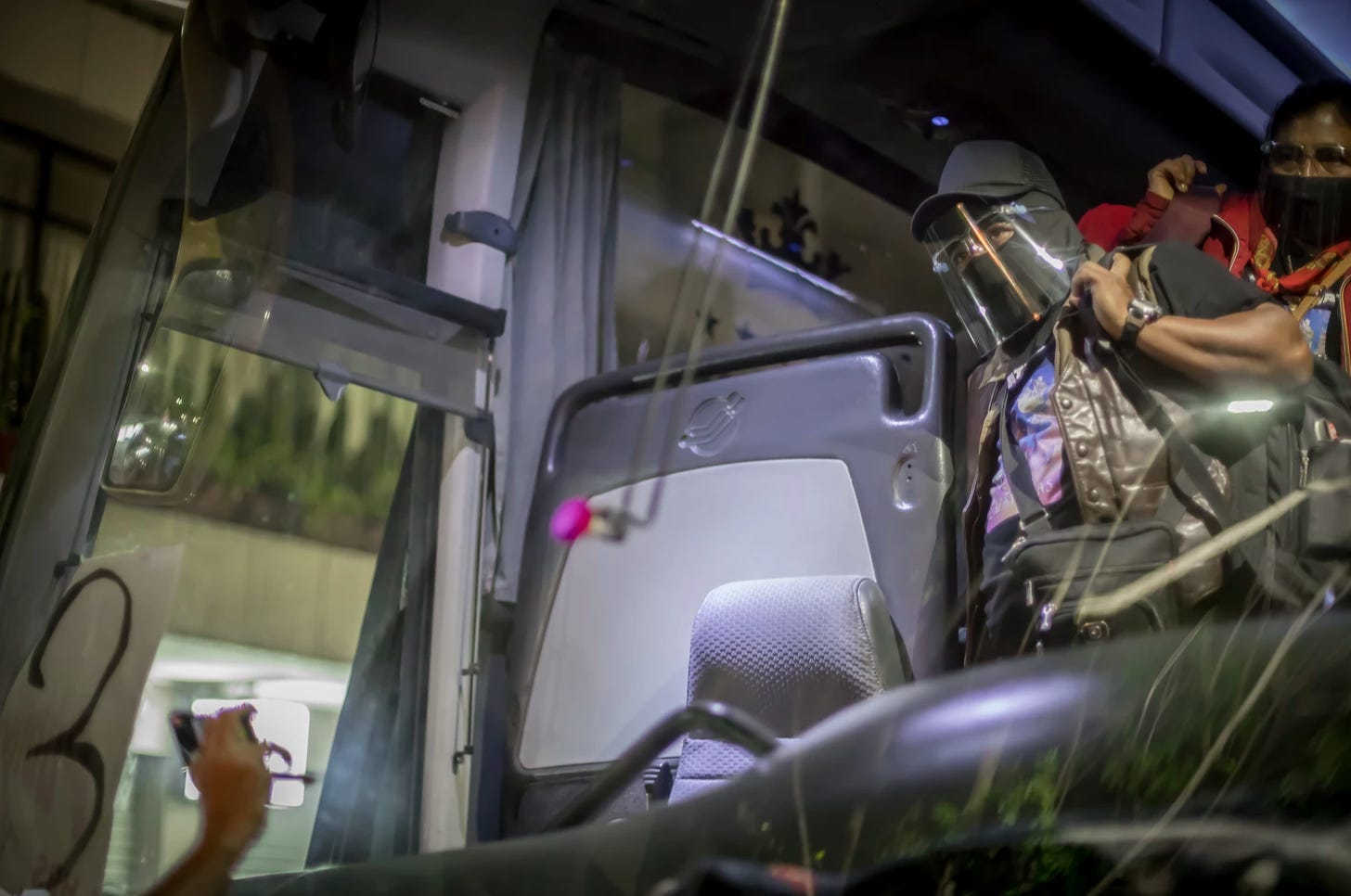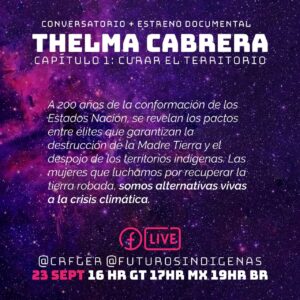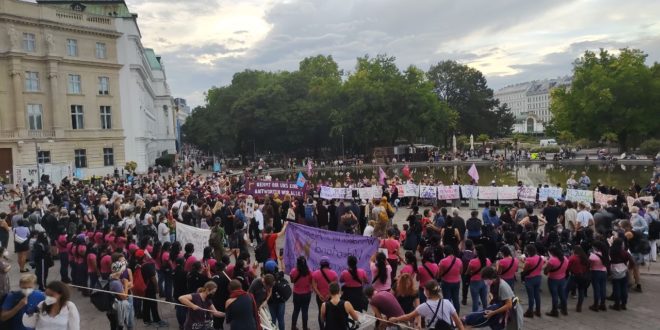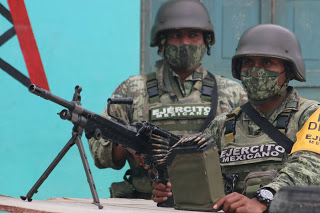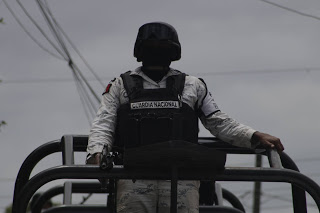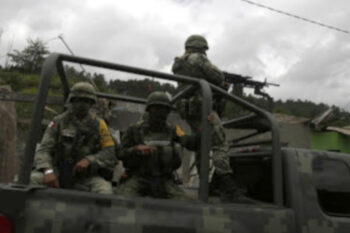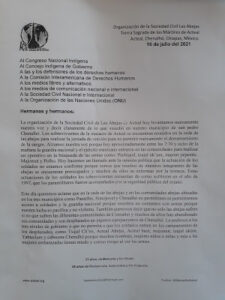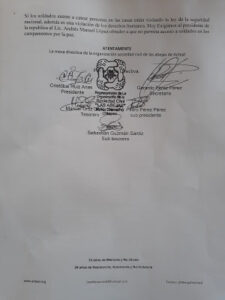
Women
(Español) Canadá y Oaxaca simulan hermandad con pueblos indígenas
Por Ñanì Pinto
En portada: Manifestación realizada en Oaxaca por comunidades indígenas en contra de la minera Cuzcatlán, filial de la canadiense Fortuna Silver Mines. Foto: Santiago Navarro F.
A unos días de concluir el evento denominado ‘Encuentros Indígenas Canadá-Oaxaca 2021’ organizado por el gobierno de México y Canadá entre el 20 de septiembre y el 8 de octubre de 2021, diversos pueblos, colectivos y comunidades indígenas de Oaxaca se deslindaron y denunciaron una “simulación de hermandad” con la que se pretende “desviar nuestra atención de los problemas estructurales y las situaciones de despojo y saqueo de las que pretenden hacernos objeto”.
En un posicionamiento firmado el 29 de septiembre por autoridades de San Pedro Apóstol y San Pedro Mártir, Ocotlán y de Capulálpam de Méndez, así como por las comunidades El Rebollero, Río Minas y Los Arquitos, San Pablo Cuatro Venados, Zaachila, se advierte que “el Estado Canadiense y el Estado Mexicano, a través del gobierno de Oaxaca, pretenden lavar sus rostros en lo que respecta a su relación colonial con las comunidades indígenas y afros”.
Comuneros, comuneras y pobladores hacen un recuento del dolor y la violencia colonial que han sufrido los pueblos y comunidades indígenas de ambos países, desde el reciente descubrimiento en Canadá de fosas con cientos de cuerpos de infantes en antiguos internados para niñas y niños indígenas, hasta las concesiones mineras en México que han sido otorgadas a empresas canadienses en tierras comunales sin el consentimiento de los pueblos, las cuales han causado conflictos socioambientales que han provocado el asesinato de defensores y la contaminación impune de ríos y suelos.
Te puede interesar → Minera Cuzcatlán: Con licencia para contaminar
“Según datos del Observatorio de Conflictos Mineros de América Latina, en México, el 50% de los conflictos mineros está relacionado directamente con empresas canadienses; de acuerdo con información contenida en el Sistema Integral Sobre Economía Minera, de las 242 empresas extranjeras con proyectos mineros en el país, 160 corresponden a Canadá; además de que el 74% de las concesiones para explotación mineras son otorgadas a empresas de dicho país” recalcan.
El comunicado también es firmado por el Comité Ixtepecano en Defensa de la Vida y el Territorio, el Espacio de Mujeres en Defensa de la Madre Tierra “Las Meñas”, el Colectivo Matza, San Miguel Chimalapas y la Articulación Por la Vida, Contra la Minería en el Valle de Ocotlán.
En el documento, los colectivos y las comunidades que han vivido en carne propia el embate de megaproyectos de capital extranjero con la anuencia de las autoridades locales, advierten que no le van a permitir ni material ni simbólicamente el avance “a quienes con sus leyes justifican o facilitan el exterminio indígena (…) a quienes confunden nuestra historia de resistencia con folklor y a quienes ocultan sus negocios tras la expresión “hermandad cultural”.
Los “Encuentros Indígenas Canadá-Oaxaca 2021” surgieron “gracias a la invitación del Presidente de México, Andrés Manuel López Obrador, al Primer Ministro de Canadá, Justin Trudeau, a sumarse a las diferentes conmemoraciones que México celebra este 2021”. Así lo establecen en su página web. “En ese contexto, se decidió hermanar al pueblo de Canadá con el pueblo oaxaqueño”.
Mientras tanto, las comunidades señalan que se encuentran en alerta máxima ante este acto de simulación de hermandad. “Sabemos que sus intereses son y serán siempre otros. Los lazos de afinidad y reciprocidad con lxs indígenas de Isla Tortuga los tejeremos nosotrxs, con el objetivo de extender nuestra resistencia, hasta que las praderas, montañas, ríos y animales vuelvan a ser libres, hasta que la resistencia nos permita vivir con dignidad, y no a la sombra de un deber ser impuesto y construido por aquellos que duplican sus inversiones gracias a nuestro exterminio”, finaliza el documento de denuncia.
(Español) Nuevos desplazamientos por violencia en Pantelhó
• La omisión del Estado mexicano favorece el miedo y terror contra las comunidades en la zona
El Centro de Derechos Humanos Fray Bartolomé de Las Casas (Frayba) ha recibido información sobre el desplazamiento de al menos 90 personas originarias de la comunidad Nuevo Paraíso, San José El Carmen y de la cabecera municipal del municipio de Pantelhó; en su mayoría son mujeres, niñas, niños y adolescentes e integrantes de la Organización Sociedad Civil Las Abejas de Acteal (Las Abejas de Acteal), esto debido a la tensión política que se vive en el municipio de Pantelhó.
Según información recibida por autoridades comunitarias de Pantelhó y Chenalhó, en los próximos días el número de desplazados aumentaría debido al miedo a que se desate la violencia el próximo 1 de octubre: “Hay miedo que los sicarios de Raquel Trujillo lleguen, que hagan bloqueos y haya enfrentamientos, por eso la gente ahora tiene miedo, muchos ya se están alistando para salir, otros ya se fueron, se han ido a San Cristóbal de Las Casas y a otros municipios”.
La violencia ha ido incrementando, después de las declaraciones realizadas por el señor Raquel Trujillo, Presidente Municipal electo en el municipio de Pantelhó, de tomar posesión de su cargo el próximo 1 de octubre. Sus declaraciones ha impactado y generado temor a la población provocando nuevos desplazamientos. El Estado mexicano tiene la obligación de prevenir el desplazamiento forzado interno adoptando las medidas que sean necesarias, además tiene el deber de investigar, procesar y sancionar a los responsables, para que tales hechos no se repitan.
La ineficacia y simulación de las acciones del Estado mexicano sigue favoreciendo un ambiente de violencia y miedo contra las comunidades tsotsiles y tseltales de los municipios de Chenalhó y Pantelhó, obligando a las personas a abandonar sus hogares. Además el desplazamiento forzado interno vulnera el derecho a la libre circulación y residencia, afecta el derecho a una vida digna, provocando una serie de efectos nocivos, como la pérdida de la tierra y de la vivienda, la marginación, tortura, agudización de la pobreza y deterioro de las condiciones de vida, incremento de pérdida del acceso a la propiedad, inseguridad alimentaria y desarticulación social.
El Frayba se une al llamado de Paz y a la preocupación expresada por la parroquia de San Pedro Apóstol Mártir de Chenalhó y de la Diócesis de San Cristóbal de Las Casas, frente a la espiral de violencia que hay en la región. Por último exigimos al gobierno de México la implementación de medidas cautelares y precautorias ante el anuncio de posibles hechos de violencia que vulneren la seguridad e integridad personal de la población en la región de los Altos Chiapas.
San Cristóbal de Las Casas, Chiapas, México
28 de septiembre de 2021
Boletín No. 12
Descarga el boletín aquí



